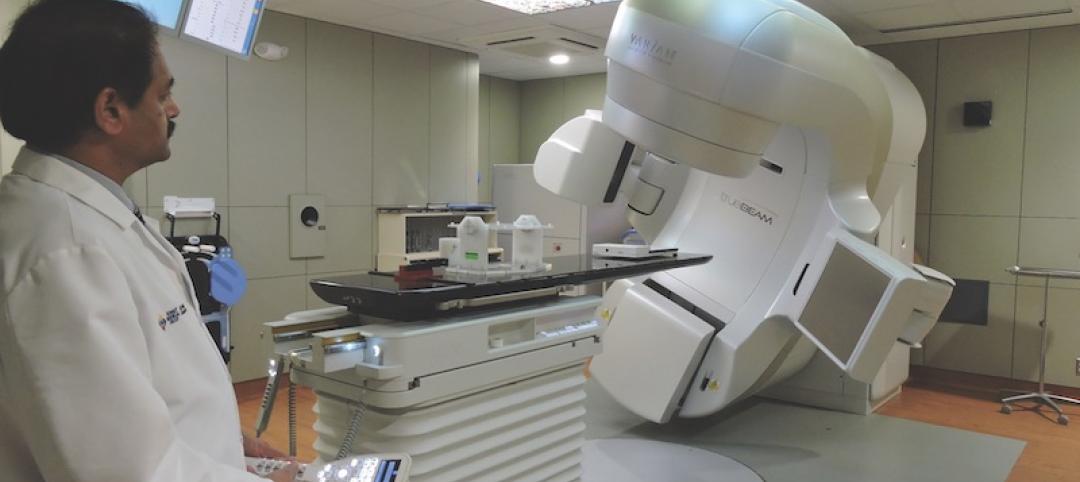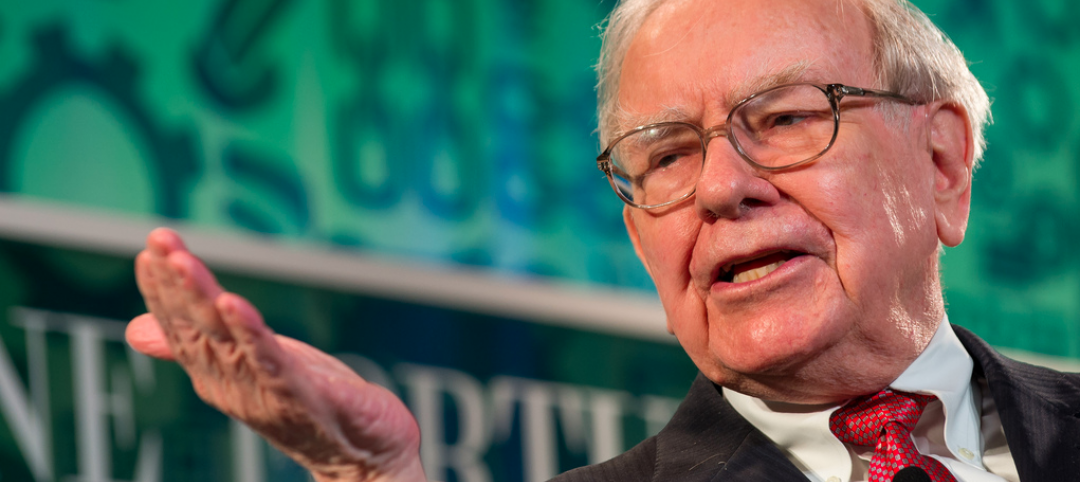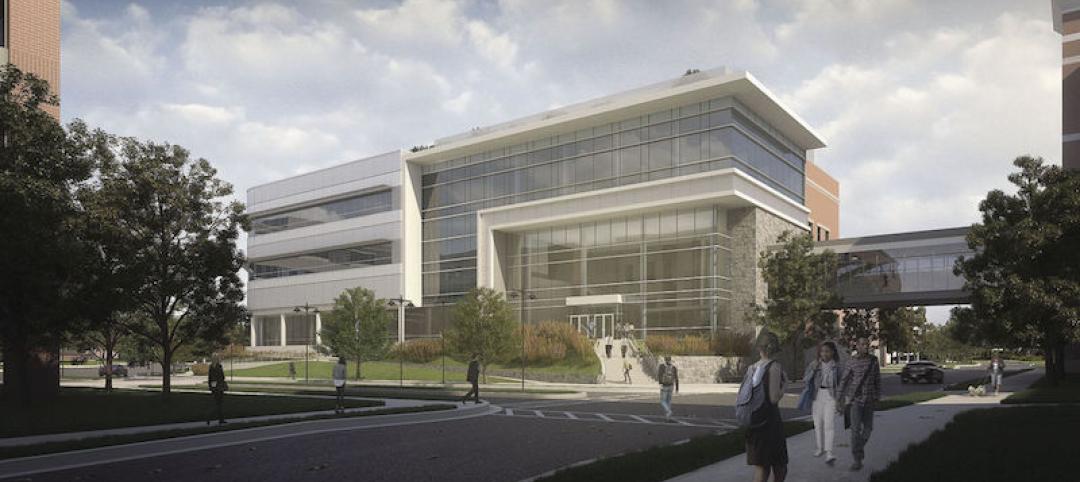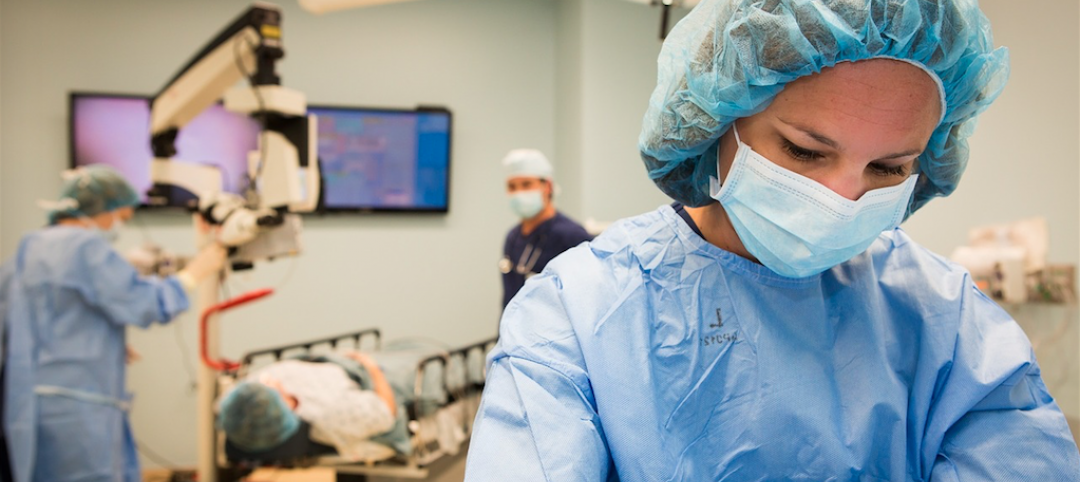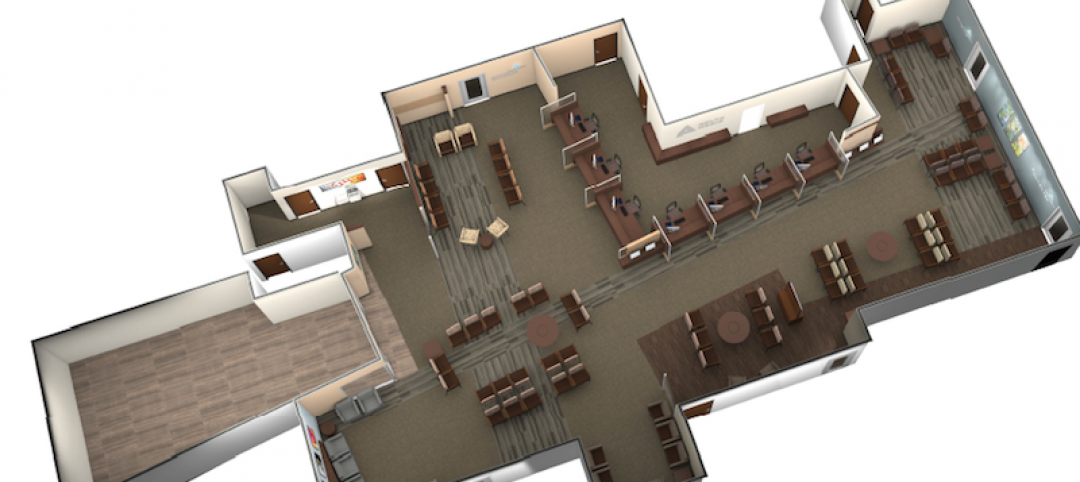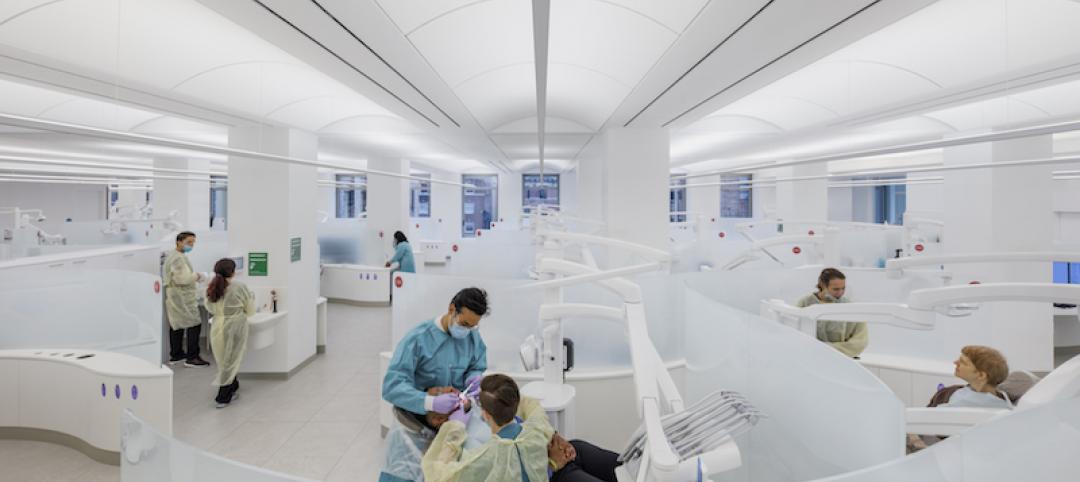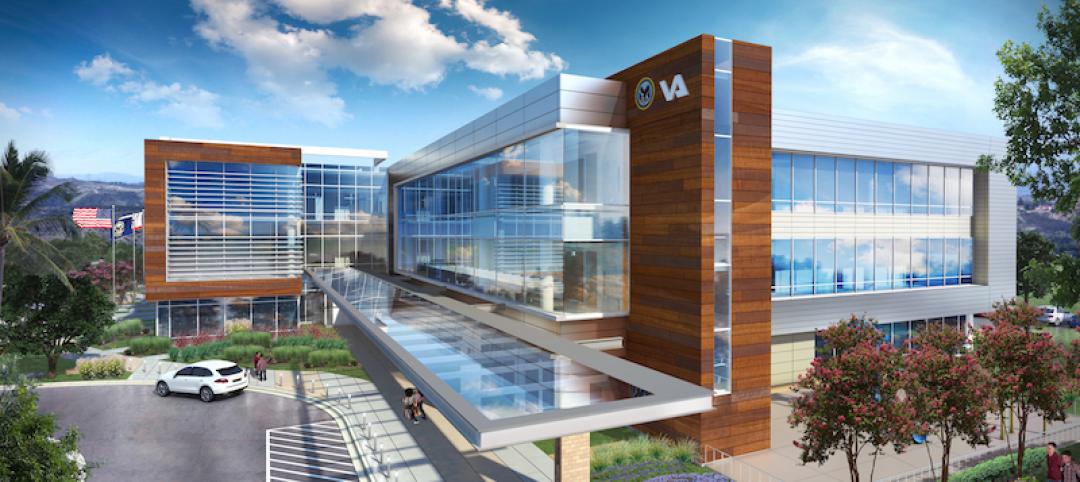Drone technology is slowly but steadily flying its way into the healthcare sector.
In late March, the WakeMed Health & Hospitals system started using drones to transport blood samples from a medical park in Raleigh, N.C., to its main hospital one-third of a mile away. Drones have been making that trip at least six times a day, five days a week, according to drone supplier Matternet, which is partnering in this program with the hospital, UPS, and the state’s Department of Transportation. This is the first time the Federal Aviation Administration has allowed regular commercial flights of drones to carry products, according to the Associated Press.
The FAA has also signed off on a test program in Nevada that would use drones to transport defibrillators to patients in rural areas during emergencies. That program, scheduled to start in Reno next year, will be supplied by the drone company Flirtey, whose machines will be pilot-controlled from remote locations.
Drones are seen as possible tools to support a hospital’s resilience. Leo A Daly’s Miami studio has developed a concept for a drone-powered hospital, which would use unmanned aerial vehicles (UAVs) to deliver food and medical supplies directly to patients.
Eduardo Egea, AIA, NCARB, a vice president and managing principal at the firm, says this idea was inspired by his personal experiences aiding relief efforts in Puerto Rico following Hurricane Maria, a natural disaster from which the island still hasn’t fully recovered.
During that storm, the entire island lost power. Many roads were either destroyed or impassable. Patients in hospitals were stranded without access to food, medication, or air conditioning. Indeed, Egea recalls trying to get family members off the island, including his father and mother, both in their late 70s, with one suffering from dementia and the other a cancer patient in remission.
He describes the drone-powered hospital as a new type of facility that incorporates autonomous aircraft into a supply chain that would include a network of fulfillment centers that the drones would draw from. In this “last mile” approach, “food, medicine, and other medical supplies are delivered directly to patients as needed via a drone port integrated into the exterior wall of each patient room,” explains Egea.
That port would, essentially, be a valve through which the docked cargo could slide and be accessed in a cabinet within the patient’s room.
Using drones in this manner would add another layer of resilience to the hospital’s operations. And by moving certain materials management, storage, food production, and pharmacy functions off-site, Egea estimates that a drone-powered hospital could be 15% to 17% smaller in square footage.
Leo A Daly is currently looking for partners to test this concept with healthcare systems, retailers, and suppliers. It developed its concept as a “what if” for the future 64-bed Guaynabo City Hospital in Puerto Rico, which is still in the planning stage and has yet to send out an RFP. “A potential outcome is to find a best possible use for the site via a public private partnership,” Egea tells BD+C.
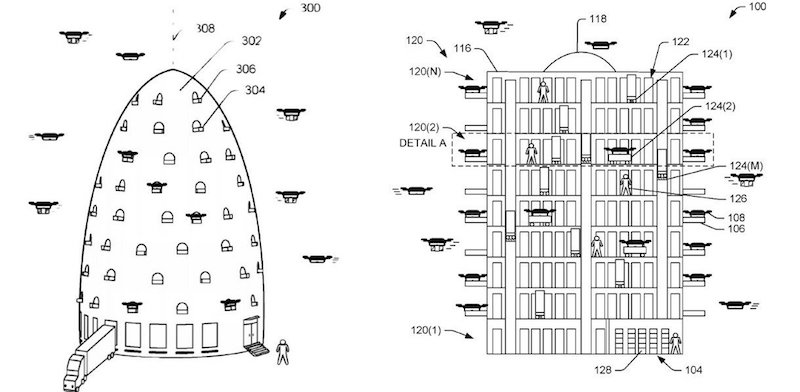
A patent-application image presented by Amazon that shows a beehive-shaped fulfillment center from which drones could pick up supplies for deliveries to occupants of hospitals, high-rises, and other buildings. Image: Amazon/U.S. Patent and Trademark Office
Egea says his firm is encouraged that its concept is feasible by Amazon’s vision of food distribution aligned with its recent acquisition of Whole Foods. Drone-powered delivery presents hospitals with opportunities to partner with pharma companies, food retailers, and other suppliers. “The concept of a drone-powered hospital touches many other industries, and involves many logistical, security, and technological questions that suggest business opportunities,” says Egea.
“The healthcare industry is getting away from the idea of large, complex facilities, and moving toward more ambulatory care,” he adds. “A drone-powered micro-hospital could be easily assembled and introduced into any community, supported by the strength of drone-assisted last-mile fulfillment.”
Related Stories
Healthcare Facilities | Feb 21, 2018
New $412 million advanced research center hopes to attract scientists and clinicians in pediatric biomedical research
The Crump Firm is designing the project.
Healthcare Facilities | Feb 16, 2018
Cancer centers' 'one-stop shop'
Healthcare systems ask their AEC partners for design flexibility that is adjustable to advances in medicine and technology.
Healthcare Facilities | Feb 14, 2018
Satellite centers keep cancer treatment closer to patients' orbit
This treatment center is half new construction, half renovation of a building that had been used for family services.
Healthcare Facilities | Feb 1, 2018
Early supplier engagement provides exceptional project outcomes
Efficient supply chains enable companies to be more competitive in the marketplace.
Healthcare Facilities | Jan 30, 2018
Buffett, Bezos, Dimon partner to tackle the U.S. healthcare system
The three mega companies—Amazon, Berkshire Hathaway, and JPMorgan Chase—will pursue the formation of an independent company that is “free from profit-making incentives and constraints” when it comes to U.S. employee healthcare.
Healthcare Facilities | Jan 29, 2018
The new Virginia Tech Biomedical Research Addition will include research facilities in five thematic areas
The project is a collaboration between Carilion Clinic and Virginia Tech.
Healthcare Facilities | Jan 10, 2018
Healthcare market year in review for 2017
While we have not fully turned the corner on healthcare reform and in particular healthcare payment reform, 2017 confirmed trends of consumerism and the need for more proximate low-cost options.
Retail Centers | Jan 9, 2018
The addition of a medical practice is part of the cure for reviving a shopping mall in Scranton, Pa.
Delta Medix is one of several tenants that are changing the image of the Marketplace at Steamtown.
Healthcare Facilities | Jan 6, 2018
A new precision dental center embodies Columbia University’s latest direction for oral medicine education
The facility, which nests at “the core” of the university’s Medical Center, relies heavily on technology and big data.
Healthcare Facilities | Dec 19, 2017
‘Healing Oasis’ will provide healthcare services to veterans in northern California
Hoefer Wysocki designed the $40 million facility.




